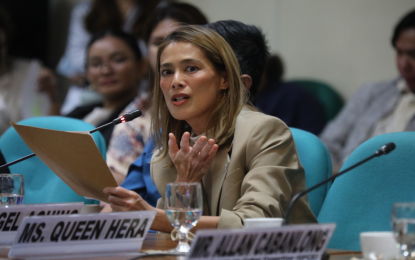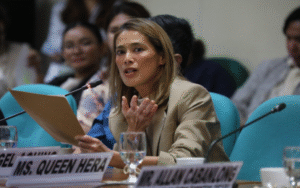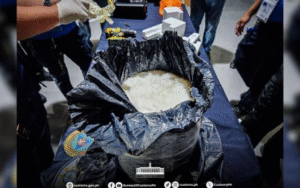THE last few months have given us a closer look at how the national budget is stolen through unscrupulous means.
While President Ferdinand Marcos Jr. dropped a bombshell list of suspiciously favored public works contractors, the issue has actually been brewing for some time, triggered by revelations from Mayors Vico Sotto and Benjie Magalong of Pasig and Baguio, respectively.
As congressional hearings start, we are all witnesses to the madness.
Sotto also knows how to relay the same information, but he says it in a way that very few can. Amid the controversies hounding key personalities, he said that “we should stop treating corruption as normal, and stop admiring those who flaunt wealth.”
This normalized mindset is what’s rubbing salt to an already injured populace, and the idea of removing all unnecessary flexes is but a refreshing respite.
Get the latest news
delivered to your inbox
Sign up for The Manila Times newsletters
Truly, we need more of Mayor Vico.
Combine this with the movement that Magalong has been leading. In a recent interview, he mentioned that his motivation is nothing but to secure a better future for his grandchildren, even if it meant risking his life.
The sentiment can’t be echoed any further. On the ground, people are just waiting: What can we do?
Good governance
The Mayors for Good Governance take this fight further, with more than 50 of them now backing clean leadership. This is very telling, since their office is a constant presence in our daily lives: permits, licenses, projects, garbage collection, peace and order.
A transparent mayor benefits the entire city. For instance, Mayor Vico is building a new city hall from savings alone.
Two things imperative to good governance are in place: (1) the capability to report the same, through performance governance and having this translated to something ordinary Filipinos can understand and appreciate; (2) sheer political will. The latter is more vital because not all mayors have it.
But perhaps this can be considered as a strategic starting point. In business, we typically baseline the culture index of the organization, with metrics that touch on behaviors, organizational climate and values. This can be done as well in the public sector.
Education
Education is another frontline. Kids imitate what they see. If schools tolerate cheating, or if they hear parents bragging about “may kapit kami,” they’ll grow up thinking corruption is a clever mechanism.
Citizens, too, can’t wash their hands off it. Every time we slip cash to a traffic enforcer to get us off the hook, we keep the bribery culture alive.
Every time we excuse a relative who misuses public funds, we feed the rot. It is uncomfortable, yes, but cultural reset means fixing our own habits, too.
The challenge still persists at the grassroots level. As we dream of progress and sustainable development, we have to start at the base level.
People yield to corruption to have a better life, a better future for their family. It is a sick way of securing generational wealth at the expense and injury of the country.
Rather than having this mindset, we should teach our children — the country’s future — the skills needed to future-proof their lives. A closer look at our public school’s curriculum would show you the gap that has been persisting.
Only when we raise the standards of development and competitiveness will we have a fighting chance for a sustainable future. Until then, certain practices remain, unless there will be more of the likes of Mayor Vico and Mayor Benjie.
We are at a crossroads. Either we shrug things off with “ganyan talaga,” or we say, enough, stop it. Mayor Sotto is right — we must stop normalizing what is wrong, stop glorifying stolen wealth.
If leaders, companies, schools and citizens all choose honesty again and again, little by little, the reset comes. And maybe, one day, corruption will no longer be part of Filipino culture — just an old, bad habit that we finally discarded. Possible? It is!
The only question is, in whose lifetime will this reset happen?
Kay Calpo Lugtu is chief operating officer of Hungry Workhorse, a digital and culture transformation firm. Her advocacies include food innovation, nation-building and sustainability. She may be reached at [email protected].











